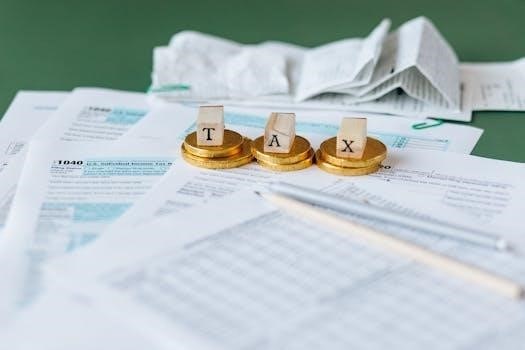
Exploring government’s roots is vital for citizens, fostering informed participation. Worksheets offer structured learning on core concepts like government origins and types. These resources aid in understanding how governments function and impact our lives.
Overview of the Importance of Studying Government Foundations
Understanding the foundations of government is crucial for fostering active and informed citizenship. It empowers individuals to engage meaningfully in the democratic process. Examining the origins, purposes, and structures of government allows us to grasp how decisions are made and how they affect society. Worksheets provide a structured approach to explore key concepts such as the rule of law, limited government, and the separation of powers. This knowledge equips citizens to critically evaluate government actions and participate effectively in shaping public policy. Furthermore, studying government foundations helps us appreciate the historical context of our political systems and the ongoing evolution of democratic ideals. It cultivates a deeper understanding of our rights and responsibilities, promoting a more just and equitable society. Ultimately, this knowledge is essential for preserving and strengthening democratic institutions.

Key Concepts in Government Foundations
This section explores essential ideas⁚ government’s purposes, origins, and diverse forms. Worksheets delve into how governments influence economic systems; These fundamental concepts are vital for understanding political frameworks.
Purposes and Origins of Government
Worksheets explore why governments exist, examining their core functions like maintaining order and providing public services. These resources also delve into the origins of government, detailing theories that explain how they first came to be. These theories often trace back to the family unit, suggesting a natural progression towards more complex organizational structures. They also emphasize the need for national security and economic stability, highlighting essential purposes of government. Understanding these origins is crucial for comprehending current government roles and their impact on societies. The study guides explain how governments evolved to meet specific societal needs. Worksheets offer opportunities for students to define the functions of their government. They will learn how these functions impact their daily lives and the larger community. It also aids in recognizing the importance of civic participation.

Types of Government (e.g., Democracy, Autocracy)
Worksheets provide a framework to understand varied forms of government, from democracies where citizens elect leaders, to autocracies where power resides in a single ruler. These resources highlight the distinctions between representative democracies and other systems. Students will analyze different approaches to governance and their implications for individual liberties and collective decision-making. They will learn how power is distributed and exercised within each type, thus enabling a comprehensive understanding of political structures. The worksheets explore various forms of democracy, including those where citizens elect representatives, and types of autocracies where a small group seizes power. They promote critical thinking about the advantages and disadvantages of each form. The goal is to empower students to recognize the impact of government types on their daily lives. They will also learn how these systems vary in terms of citizen participation.
Role of Government in Economic Systems
Understanding the government’s economic role is crucial, and worksheets offer a structured approach to this topic. These resources explore how governments influence economic systems through regulation, taxation, and spending. They examine various economic models, from free markets to command economies, and analyze the government’s impact on each. Students will learn how governmental policies affect trade, employment, and resource allocation. Worksheets will delve into the debates surrounding the extent of government intervention and the balance between market freedom and state control. These materials help students analyze the roles of the government in ensuring economic security, and the provision of public goods. They will also learn how governments impact economic growth and stability. Through worksheets, students will learn about the relationship between government and the economic well-being of citizens. They will also gain a deeper understanding of economic systems.

Core Principles of American Government
The American government is built on key principles. Worksheets help explore these, such as the separation of powers, limited government, and popular sovereignty. They help students understand the foundations of American democracy.
Separation of Powers (Legislative, Executive, Judicial)
The United States government employs a system of separated powers, dividing authority among three distinct branches⁚ the legislative, the executive, and the judicial. This division is a cornerstone of American democracy, designed to prevent any single branch from becoming too powerful. Worksheets can effectively illustrate this concept, helping students understand the unique roles and responsibilities of each branch. The legislative branch, Congress, is responsible for creating laws. The executive branch, headed by the President, enforces these laws. Finally, the judicial branch, led by the Supreme Court, interprets the laws. Through interactive exercises and clear explanations, worksheets can make the complex system of checks and balances more accessible to students, highlighting how each branch limits the power of the others, ensuring a balanced governmental structure. This is a crucial concept to understand when studying the foundations of American government.
Limited Government and Rule of Law
The principles of limited government and the rule of law are fundamental to the structure of the United States. Limited government implies that governmental power is restricted, typically through a written constitution, preventing absolute authority. The rule of law mandates that everyone, including government officials, is subject to and accountable under the law, ensuring fairness and equality. Worksheets can provide an essential tool for students to grasp these concepts, utilizing exercises that explore the restrictions placed on government and the implications of laws being fairly applied. The Magna Carta, an early example of limiting monarchical power, serves as a historical precedent. These principles protect individual rights and freedoms, preventing arbitrary actions by the state. Educational worksheets can also highlight the importance of an impartial legal system and the role of citizens in upholding these principles.
Popular Sovereignty and Natural Rights
Popular sovereignty, the idea that governmental power comes from the people, is a cornerstone of democratic societies. It emphasizes that citizens hold the ultimate authority, typically expressed through voting and representation. Natural rights, inherent to all individuals, are rights that cannot be taken away by any government. These include life, liberty, and the pursuit of happiness. These concepts are often explored using worksheets, which allow students to analyze the relationship between governmental power and individual rights. Exercises may involve scenarios or case studies to illustrate how these principles operate in practice, including the ways in which a government can both uphold and violate them. Worksheets can also explore the historical development of these ideas, from the Enlightenment to the US Constitution, thus providing an in-depth understanding of the foundational principles of democratic governance.

Educational Resources and Activities
Engaging educational materials include worksheets, interactive lessons, and quizzes. These tools help students grasp government foundations through active learning and assessment, enhancing their civic understanding.
Worksheets for Understanding Government Foundations
Worksheets serve as a cornerstone for comprehending the foundations of government, offering structured activities that delve into key concepts. These resources frequently cover topics such as the purposes and origins of government, exploring how and why governments are formed, and the different forms they take. Worksheets often incorporate exercises that help students differentiate between various types of government, such as democracies and autocracies. Furthermore, they provide insight into the role of government within different economic systems, illuminating the connections between political structure and economic policy; By using these materials, learners can actively engage with the material, filling in blanks, completing crossword puzzles, and answering questions that test their grasp of essential ideas. The use of worksheets provides a method for assessing a student’s comprehension and encourages critical thinking about government’s foundational elements, making them a valuable resource in civic education.
Interactive Activities and Lesson Plans
Interactive activities and lesson plans are crucial for making the study of government foundations engaging and effective. These resources often use a variety of methods, including skits and role-playing, to help students understand complex concepts like the rule of law and separation of powers. Lesson plans frequently incorporate discussions about key historical documents, like the Declaration of Independence and the Constitution, to demonstrate their influence on modern government. Moreover, interactive activities provide opportunities for students to collaborate and apply their knowledge, often through simulations of government processes or debates about important civic issues. These types of learning experiences help students move beyond rote memorization, and instead, develop a deeper understanding of the practical implications of foundational government principles. Access to free lesson plans and resources allows educators to create stimulating learning environments. These tools help students connect with the material and become informed citizens.
Review and Assessment Tools (Quizzes, Tests)
Review and assessment tools, such as quizzes and tests, are essential for evaluating students’ comprehension of government foundations. These instruments provide feedback on learning and identify areas needing further attention. Quizzes often focus on key vocabulary and basic concepts, ensuring a solid understanding of fundamental ideas. Tests, on the other hand, assess deeper knowledge, including the ability to analyze and apply principles of government. Assessments can include various question types, like multiple-choice, short answer, and essay questions, to evaluate different skill sets. Review activities, such as question-outlining exercises, help students prepare for assessments by reinforcing learning. Check-up quizzes allow for immediate feedback, and comprehensive tests gauge overall mastery of course content. These tools enable educators to track progress and tailor instruction to the needs of individual students. The availability of these resources supports a more effective learning process.